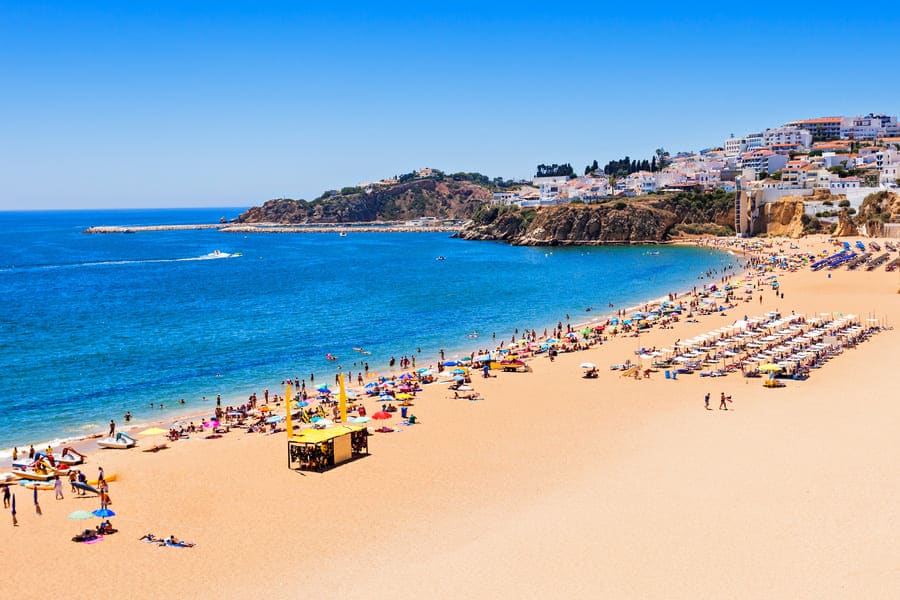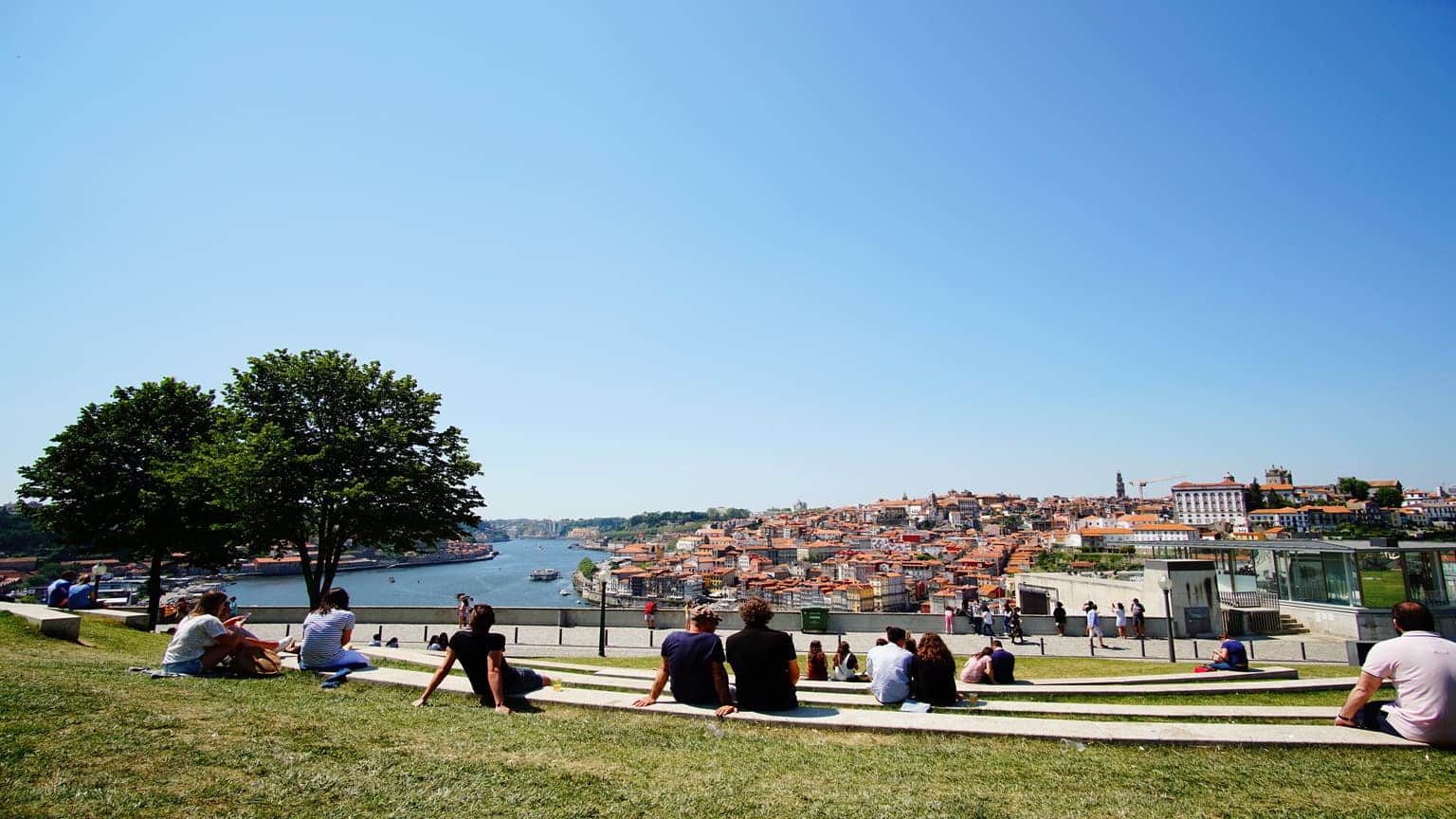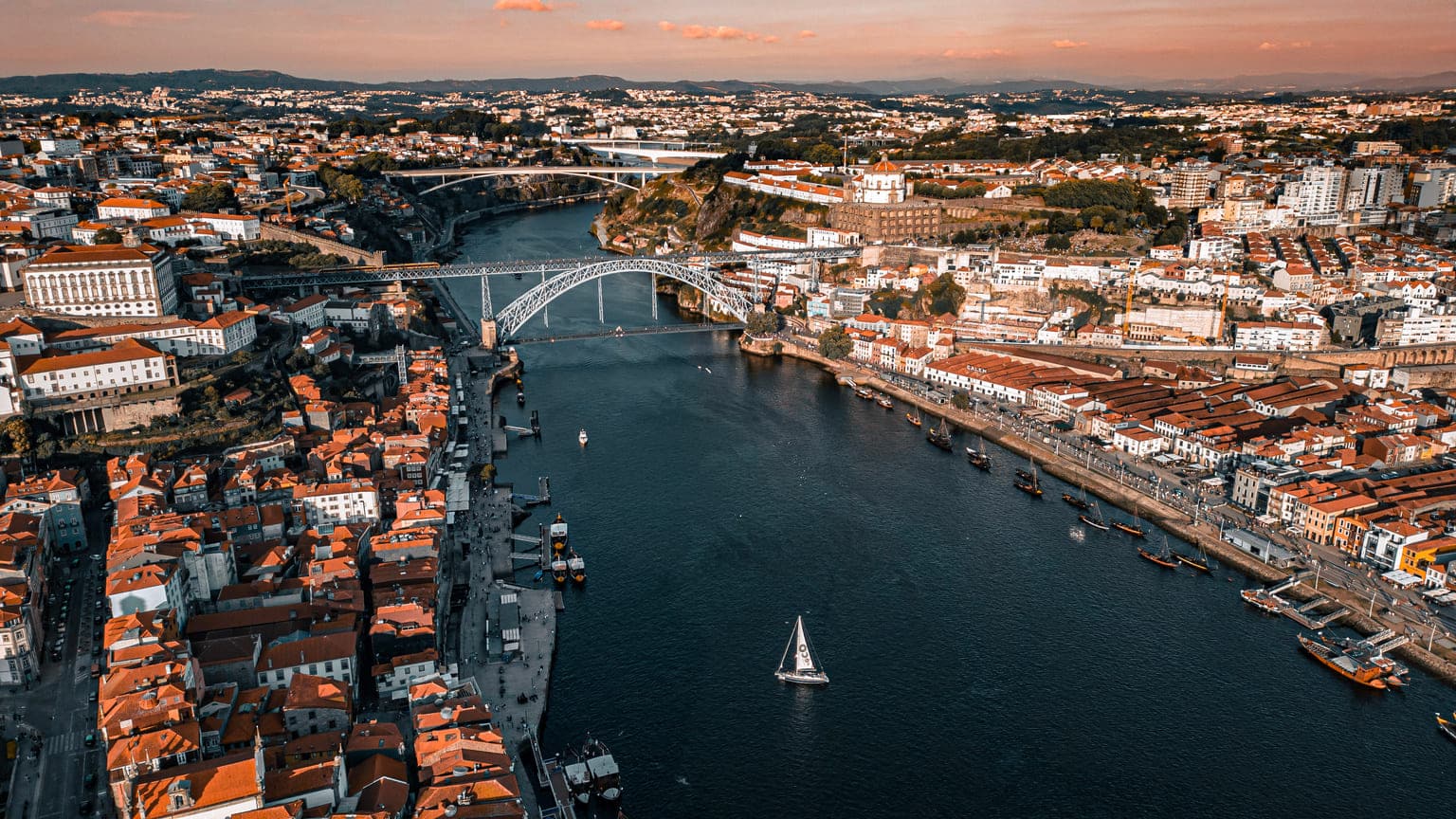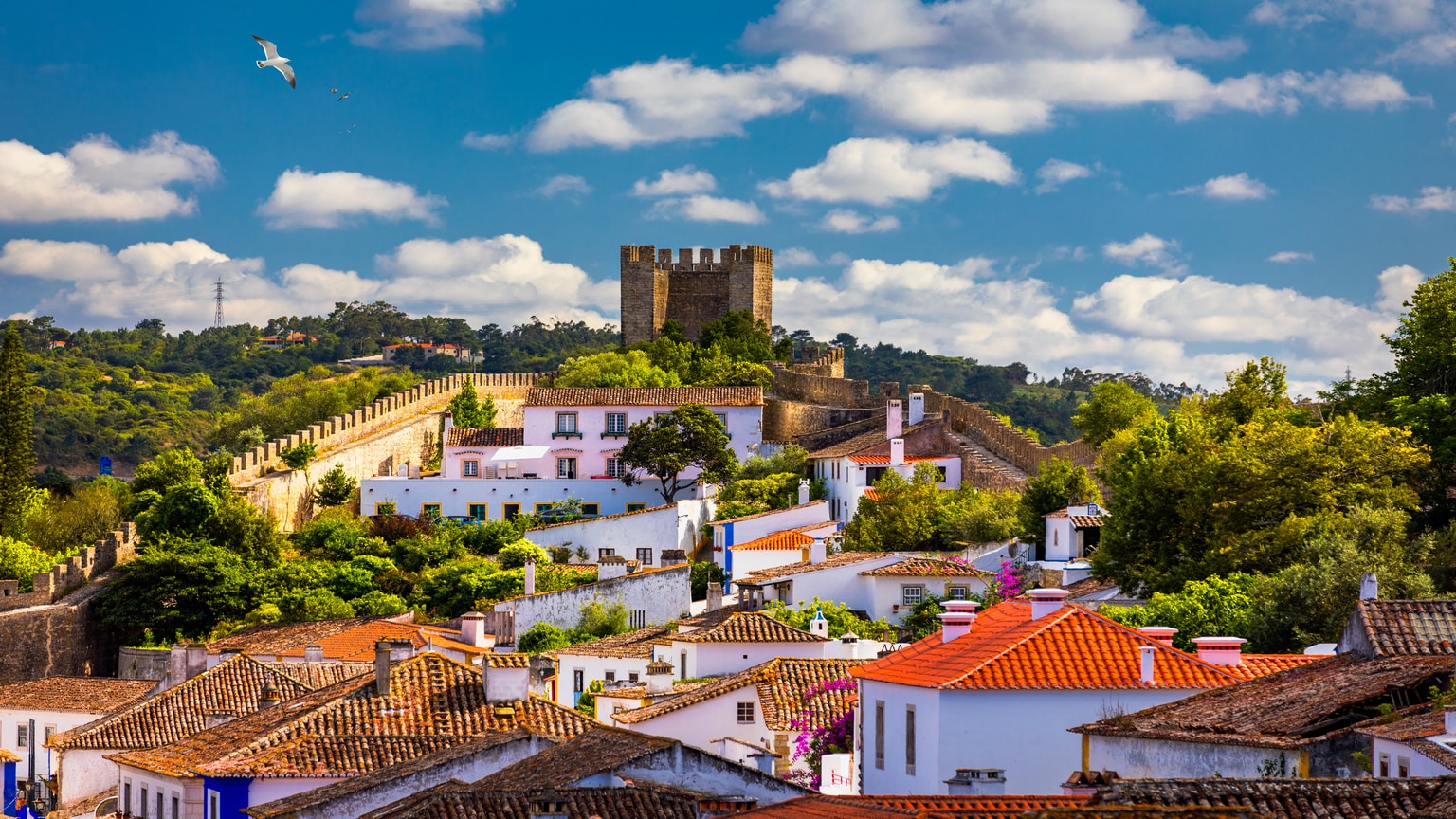D7 visa as one of the ways to get a Portugal residence permit
Individuals can get a Portugal D7 visa in their country of origin. It allows two entries in Portugal and has a 4-month validity period. Upon their arrival in Portugal, the D7 visa holder applies for a residence permit valid for 2 years with the Agency for Integration, Migration and Asylum (AIMA).
Compared to Portuguese Schengen visas, D7 is a residency one, not temporary. When a financially sufficient person is considering immigration to Portugal, they can use the D7 visa route. This route does not require fulfilling investment options but grants almost the same privileges as the Portugal Golden Visa.
The Portugal D7 visa offers the following key features:
- eligibility for a 2-year Portugal residence permit;
- best for individuals with passive income sources outside Portugal;
- 4-month validity period;
- family members can be included in the application;
- no minimum property value for rent or purchase;
- no right to work in Portugal;
- mandatory residency period in Portugal of at least 8 months.
A D7 visa holder can potentially obtain Portugal citizenship. In 2024, the Portuguese government contemplated a significant change to its citizenship policy. Under the proposed amendment, time spent in Portugal during the residency application process would count towards eligibility for a passport.
Previously, foreigners were only eligible for Portuguese citizenship five years following the issuance of their residency cards. Should the President of Portugal approve this new legislation in February 2024, applicants of the D7 visa will gain the ability to apply for citizenship just 5 years from their initial application date, potentially accelerating the path to citizenship for many. This way, those who applied for a residence permit in 2019 would be able to apply for a passport in 2024.
5 benefits of a Portugal D7 visa
1. Immigration to Portugal with lower costs. D7 visa expenses are lower than participating in the Portugal residence permit by investment program. The applicant must buy or rent a home and confirm their monthly passive income from sources abroad. The minimum passive income is €820 per month or €9,840 per year.
2. Including family members in the application. Spouses, children under 21, and parents can get a Portugal D7 visa with the main applicant.
3. Living in Portugal. The D7 visa leads to obtaining a residence permit, which allows staying in Portugal without limits. Portugal D7 visa holders and residents are granted almost the same rights as Portuguese citizens — they can seek medical treatment in local hospitals, be enrolled in schools and universities, and benefit from the public healthcare system.
4. Visa-free Schengen Area. D7 visa holders travel within 27 Schengen countries without receiving additional permits.
5. Opportunity to get Portugal citizenship. A foreigner can apply for Portugal citizenship after five years of residency. The Portuguese passport allows you to travel to 172 countries without visas and choose any EU country to live in. Importantly, there is no obligation for the foreign national to renounce their original passport, provided their home country's legislation permits dual citizenship.
Who is eligible for a Portugal D7 visa?
One of the main requirements for the Portugal D7 visa is that it is only available to non-EU foreigners.
Passive income from outside of Portugal is the most important factor in obtaining residency through the D7 visa. This is why the D7 visa is often referred to as the Passive Income Visa.
An applicant can receive passive income such as pensions, rental income, or dividends. It is crucial for migration officers to be assured that the applicant has sufficient funds to support themselves in Portugal, as they will not have the right to work there.
The Portugal D7 visa is suitable for those planning to move to Portugal. The mandatory residence requirement is either 1.5 consecutive years or 16 months within a 2-year period. Failing to meet this requirement can result in the loss of residence permit status.
Foreigners without passive income can still relocate to Portugal using a Golden Visa. This visa provides an alternative pathway to obtain a residence permit. To obtain this visa, applicants must invest in the Portuguese economy through options such as fund contribution, business investments, or investments in science and culture.
Another option is the Digital Nomad Visa, designed for remote workers earning at least €3,280.
Comparing Portugal's D7, Golden, and Digital Nomad Visas
| Features | Residence permit after D7 visa | Golden Visa | Digital Nomad Visa |
| Minimum investment | Not required | €250,000+ | Not required |
| Proof of sufficient income | €820+ per month | Not required | €3,280+ per month |
| Processing time | 4+ months | 8—10 months | 4+ months |
| Mandatory residing in Portugal | 1.5 years in a row or 16 months for 2 years | 7 days a year | 1.5 years in a row or 16 months for 2 years |
| Relatives participation | Spouse, financially dependent children, parents | Spouse, children and siblings under 26, parents | Spouse, children under 30, parents |
| Registration fees for receiving residence cards | €155 per family member | €5,812 per family member | €73.10 per family member |

Portugal passive income visa requirements
The main applicant must be over 18 years old and have no criminal record. Additionally, they must hold citizenship from a non-EU country and demonstrate a passive income of at least €820 per month from outside Portugal. To qualify for a D7 visa, applicants must either buy or rent residential property in Portugal.
D7 visa applicants can also include family members in their application for Portuguese residency. This applies to:
- Spouse, without a criminal record, in an officially registered marriage or an unregistered partnership.
- Children under 18 years of age.
- Children over 18 who are studying at a university.
- Disabled children of any age.
- Brothers and sisters who are financially dependent.
- Parents of the applicant and their spouse, if financially dependent.
Passive income. Profits from business and intellectual property, pensions and leasing property earnings can be used as income to apply for the Portugal D7 visa.
The minimum income for obtaining a D7 visa is related to the minimum salary in Portugal. In 2024, it is €820 per month. If relatives receive a visa together with the investor, the main applicant needs to add 50% of income for a spouse or parent and 30% for each child.
To demonstrate the required minimum income, applicants should get a bank statement. It is advisable to maintain a balance in the Portuguese bank account equivalent to 12 months' income, or €9,840. This deposited sum can be accessed once the residence permit card has been granted.
Housing in Portugal. Applicants must have an accommodation and a registered address to get a residence permit. They can rent a property or buy it. In addition, there are no limits on the type, age and value of a property.
The average cost of buying a house in Lisbon is €3,600 per m². Residential property in Madeira is cheaper — €2,500 per m².
Rental prices also vary between regions. Lisbon’s rental price is €17 per m². Leasing an apartment in Albufeira will cost you €10—15 per m². Plus, a tenant must pay utilities, which are not included in the rental bill.
Portugal D7 visa expenses
| Expenses | For a single person | For a couple | For a family of three |
| Monthly income | €820 | €1,230 | €1,475 |
| Medical insurance per month | €14 | €28 | €42 |
| Registration fees | €90 | €180 | €270 |
| Residence permit card | €155 | €310 | €465 |
Processing time of Portugal Passive Income Visa
Typically, the process of obtaining a Portugal D7 Visa requires a timeframe of 4 months or potentially longer. The D7 visa itself is usually issued within 60 days following the initial application, while a residence permit should be granted within a maximum of 90 days after the foreign applicant has applied for it.
It's noteworthy that Portuguese authorities are bound by specific legal deadlines. For instance, they are required to provide the residence permit card within the stipulated 90-day period following approval of residency.

D7 visa obtaining process
Applicants are required to submit their D7 visa documents at a Portuguese consulate located in their home country. However, it’s important to note that before this step, applicants will need to travel to Portugal. To facilitate this process, Immigrant Invest’s experienced legal professionals provide comprehensive assistance throughout each phase of the D7 visa application journey.
Registering a taxpayer number in Portugal is possible by proxy without the applicant’s physical presence. Número de Identificação Fiscal, or NIF, is necessary for renting or buying real estate and opening a bank account in Portugal.
The investor chooses a property remotely or goes to Portugal to see the options in person. In the case of renting property, the landlord and tenant sign a long-term lease agreement, usually for one year. An investor who buys an apartment concludes a real estate purchase contract.
The applicant needs a taxpayer number and a passport to open a bank account. The procedure can also be remote. An amount sufficient for the family to live for a year is transferred to the bank account.
The list of documents includes:
- International passport.
- Medical insurance policy.
- Two colour photos.
- Police clearance certificate from the country of origin.
- Lease or purchase agreement for real estate.
- Marriage or birth certificates.
- Portuguese bank statement.
- NIF registration certificate.
The Portugal D7 visa processing takes up to 3 months. The period can be extended when additional documents are required.
The D7 visa is valid for 4 months. During this time, the applicant must come to Portugal and apply for a residence permit at the immigration office of the Agency for Integration, Migration and Asylum (AIMA).
After booking an appointment, the applicant personally submits the residence permit documents.
A residence permit card is sent to the investor’s registered address in Portugal. The first residence permit card is valid for two years. After that, the investor can extend it for another three years and then apply for permanent residence or citizenship in case they have resided in Portugal for 2.5 years consecutively or a total of 28 months within three years.
Portugal D7 visa for a young couple: experience

Here is a story of a couple who successfully obtained a Portugal D7 visa. Andrew is a Canadian citizen, and Larisa is from Ukraine. They met several years ago in Mexico. They both work in IT and travel all the time. Two years ago, they moved to Tbilisi, Georgia. The guys liked the climate, cheaper expenses and good infrastructure.
Later, they become parents and start thinking about relocating to a more prosperous country. They already have heard good feedback about the D7 visa and decided to try it this way.
Andrew had enough passive income from rent to become the main applicant and include Larisa and newborn Tomas in the application. But he must go to the consulate in Canada. Larisa also met minimum income requirements, but visiting Ukraine was not safe.
They contacted the Portugal consulate in Tbilisi and found out they didn't accept documents for the Portugal D7 visa. A couple can apply for a D7 visa in Turkey, Ankara. But they need to have Georgian residency first.
We have already had a residence permit in Georgia. We both registered as individual entrepreneurs and had an income of more than 50,000 lari a year — a minimum amount to get residency at that time. Since no consulate in Georgia could accept an application for a D7 visa. We had to go to Ankara and apply there.

Web-designer
Before applying for a D7 visa in Ankara, it was necessary to open a bank account, get NIF and rent an apartment. With a Canadian passport, Andrew could travel to Portugal visa-free and stay for 90 days per 6 months. So he went to Lisbon and did all the procedures for two months.
After that, the family went to the Turkish consulate in Ankara and applied for a Portugal D7 visa. They decided to live in Istanbul while waiting for a consulate's decision. In two months, the application was approved. They got back to Georgia, packed the stuff and went to Lisbon.
They made an appointment at SEF, now AIMA, and submitted documents. Now, they are waiting to get residence permit cards and making huge plans for the future in Europe.
Overview of the Portugal D7 Visa
Summary
- The Portugal D7 Visa is designed for individuals with a minimum monthly passive income, such as dividends, rent, or pension, which should meet or exceed €820.
- The D7 Visa extends its benefits to include family members, such as spouses, children, and parents, allowing them to apply alongside the main applicant.
- The residence permit obtained after a D7 visa is valid for two years, with the possibility of renewal for an additional three years if a foreigner has resided in Portugal for 1.5 years consecutively or a total of 16 months within two years.
- After holding a residence permit for 5 years, individuals can apply for permanent residence or Portuguese citizenship if they spent 2.5 years consecutively or a total of 28 months within three years.
- For those with no passive income, there is another way to obtain a residence permit in Portugal: a Golden Visa.
Frequently asked questions
It’s one of the ways to get a Portugal residence permit. The D7 visa allows two entries to Portugal and has a 4-month validity period. After arriving in Portugal, the D7 visa holder is able to apply for a residency permit with the Agency for Integration, Migration and Asylum (AIMA).
Remote workers can get a Digital Nomad Visa to Portugal. The minimum income required to obtain the visa is €3,280. With affordable living costs, a burgeoning tech ecosystem, and a mild climate, Portugal is an ideal destination for digital nomads seeking work-life balance and adventure.
The Portugal D7 visa is exclusively available to non-EU nationals. The primary eligibility criterion hinges on demonstrating sufficient passive income €820 a month outside Portugal. It can be pensions, dividends, or rental income from property ownership.
It depends on family members’ amount and renting or purchasing real estate costs. The minimum income for obtaining a D7 visa is related to the minimum salary in Portugal. In 2024, it is €820 per month. Additionally, applicants will need to demonstrate at least €9,840 of savings for a single person. If applying with a spouse and a child, the sum grows by €7,872.
A D7 visa candidate can apply from their country of origin. But first, they need to get a taxpayer number, rent or buy property, and collect the necessary documents.
No, you can’t. But after getting a Portugal residence permit, you can apply for a work permit and sign labour agreements with Portuguese customers.
There is no investment program in Portugal leading to obtaining citizenship. But you can get a residence permit by investment according to the Portugal Golden Visa program.
Investors can choose one of five options:
- Purchase of investment fund units for €500,000.
- Supporting arts and restoring cultural heritage for €250,000.
- Investments in research activities for €500,000.
- Business investments from €500,000.
- Opening a company with the creation of 10 job positions.
In five years, residence permit holders can apply for Portuguese citizenship.
In 2024, the minimum income for a Portugal D7 visa is €820 a month and €9,840 a year. It is recommended to demonstrate sufficient funds for at least a year. This way, the AIMA agency will know a foreigner is able to live in Portugal.
The D7 visa is still in place, and foreigners can apply for it in 2024. Currently, there are no indications that Portugal plans to discontinue the D7 visa.
What Portugal has discontinued is the program that allowed investors to obtain a residence permit through property investment. However, other options remain available, with the most popular being investment in funds.
Despite being an affordable way to move to Portugal, the D7 visa has its disadvantages. Some of them are:
- To qualify for a visa, foreigners should have a regular source of legal passive income of at least €820. Thus, the D7 visa is often chosen by retirees.
- There is a requirement to actually reside in Portugal to be able to renew a residence permit. The Portugal D7 visa minimum stay for visa holders is 1.5 years in a row or 16 months for two years.
- Citizenship in Portugal is granted if a foreigner has resided in Portugal for 2.5 years in a row or 28 months for three years with a residence permit.
It is. Health insurance is required in two steps: when applying for a D7 visa and when applying for a residence permit. Getting a visa is possible with tourist insurance that costs from €14 a month. However, when applying for a residence permit, one needs to buy extended insurance for the period of the residence permit’s validity.







